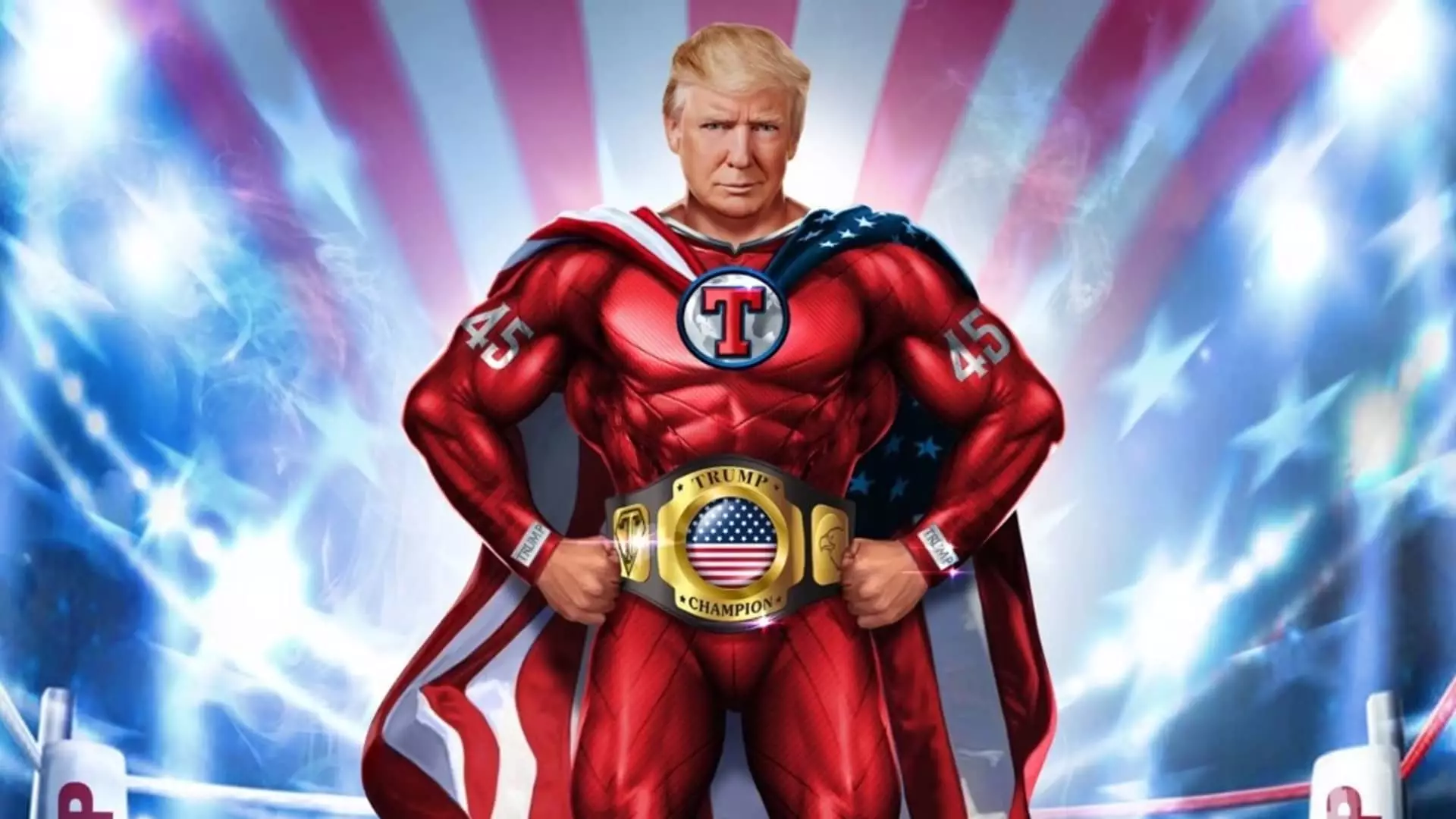As we approach the pivotal date of the presidential election, Donald Trump has positioned himself once again in the business spotlight with his latest venture: a cryptocurrency project called World Liberty Financial (WLF). Amidst a backdrop of fluctuating stock performance for Trump Media & Technology Group (which oversees platforms like Truth Social) and the volatile cryptocurrency market, WLF aims to operationalize a crypto banking model that encourages users to borrow, lend, and invest. Yet, the uncertainties surrounding its structure and operational legality raise significant questions about its feasibility and the motives behind it.
World Liberty Financial is being marketed as a decentralized financial platform enabling participants to engage in various financial activities centered on cryptocurrency. Notably, there is minimal transparency provided in terms of a white paper or comprehensive business plan detailing the operational mechanics of the project. What prospective investors know thus far hinges on fragmented information shared via social media—a mechanism that has become quintessentially Trumpian.
WLF is eyeing a substantial fundraising figure of $300 million with the ambition of achieving a valuation of approximately $1.5 billion during its initial token sale. Prior to the launch, Trump has actively lobbied for this investment opportunity on platforms like X (formerly Twitter), framing it as an avenue for supporters to engage directly with the innovative world of finance. However, essential components typically expected within such endeavors, including a detailed roadmap or clear investment strategy, remain conspicuously absent.
A significant characteristic of this proposed crypto offering is its designation as a Regulation D token sale, which allows it to bypass traditional federal securities registration with the U.S. Securities and Exchange Commission (SEC). This tactic brings both opportunities and challenges as it restricts the sale to accredited investors, who must have a net worth exceeding $1 million. Such limitations could inhibit broader public engagement, raising concerns about accessibility for average investors who may wish to partake in this venture.
In addition, Trump’s ownership stake in Trump Media—which reportedly stands at 57%—complicates the governance dynamics of the WLF initiative. Presently, there’s ambiguity surrounding how much influence he will wield in this new project. The project’s website also hints at potential financial gains for the founding team, including Trump’s family, based on a distribution plan suggesting that 20% of WLF’s tokens will be allocated to project founders. This echoes past controversies associated with Trump-led enterprises, where questions about accountability and ethical business practices linger.
Main Players and Past Endeavors
The individuals steering World Liberty Financial—chief among them co-founder Zachary Folkman—come with a range of backgrounds that spur skepticism. Folkman’s history of launching projects like Date Hotter Girls raises eyebrows, but of greater concern is his association with Dough Finance, another venture marred by a $2 million hack incident. Furthermore, his comments indicate that token holders will possess governance rights without equity representation, leaving questions about the underlying motivations behind the governance model.
Compounding this issue is the ongoing scrutiny in decentralized finance (DeFi), as WLF seeks to align itself with established platforms like Aave—one of the most recognized entities in the DeFi space. The Aave community must now grapple with the ramifications of fostering a partnership with a project entwined with controversial figures and what may be seen as a questionable business ethos. Early reactions from users suggest that many within the broader cryptocurrency community remain wary, worried that affiliations with known figures could jeopardize the integrity of established platforms.
Though World Liberty Financial promises an engaging entry point into cryptocurrency for some, the project is beset by red flags warranting rigorous evaluation. As Trump attempts to carve a niche in the burgeoning realm of crypto banking, potential investors should tread carefully; the absence of a solidified business framework, paired with the stringent conditions of investor eligibility and dubious track records of its leadership team, may imply more risk than reward.
Ultimately, the journey ahead for WLF is mired in uncertainty. Should it navigate the requisite regulatory hurdles successfully, it may create pathways for new forms of financial interaction. However, the project also possesses the potential to impact broader perceptions of cryptocurrencies and their place within mainstream finance, thus underscoring the importance of critical engagement from both supporters and skeptics. In the age of digital finance, caution and diligence must prevail over blind enthusiasm, especially when a once-presidential figure is leading the charge into unfamiliar territories.

